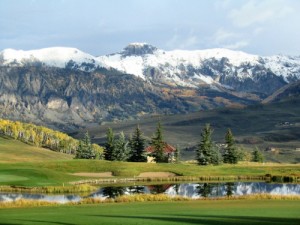Purchasing Campsite Information
 Are you are thinking of buying land for use as a campsite? Here’s some helpful information about the purchase and operation of a campsite.
Are you are thinking of buying land for use as a campsite? Here’s some helpful information about the purchase and operation of a campsite.
This information is gleaned from Inter-France who provide services for those who intend purchasing campsite property or land for the purpose. The services are available to anyone who has found himself a prospect and will proceed to purchase. Have you found a suitable property? Visit their page ADVICE FOR PURCHASE.
There is much to consider before purchasing campsites or buying land with the intention of opening a camping ground in France.
Kind of campgrounds
“Murs” and “Fonds de Commerce”
Licensing
Mobile Homes and Chalets
Setting up a new site
Purchase Process
Kinds of campgrounds
Nature Camp
A “Camping Rural” is located in the immediate vicinity of the owner’s house, in a rural or natural environment. There are about 1,100 of such nature sites in France. Sometimes, depending on the location, operating a campsite can be combined with Cottages and Bed and breakfast, which allows for the operation a slightly wider base can be obtained. Just named as the “tourist” sites is there from umbrella organizations classification in one Up to 5 stars, but for this type of land, the stars are not “étoile”, but “épis” (ears).
Camping à la Ferme
A “Camping à la Ferme” has up six places and offers capacity for up to 20 people. Each pitch has a minimum area of 300 m2 and the distance to sanitation is a maximum of 100 meters. A camping à la ferme allowed only two months a year are open and there are restrictions, are thus no mobile homes instance may set.
Aire Naturelle de Camping
When entering the new star ranking in 2012 Aire Naturelle was beaten initially. In 2014, this restored by supplementing the legislation and has also increased the maximum number of places from 25 to 30. An important consequence of the new regulations is that the Aire Naturelle is eligible for classification. This can be interesting for the operator, because it then can use a reduced VAT rate, making the tax burden be lightened considerably. For the Aire Naturelle subject to a number of conditions, including the maximum number of places, land surface up to one hectare size of the place at least 300 m2, annual reclassification of the post to preserve the natural vegetation and an opening period up to six months a year, after which the site should be restored to their natural state. In addition, a number of specific requirements in order to be eligible for classification. A problem in practice often arises is that the owner of Aire Naturelle, often without being aware of it, did not comply with certain mandatory formalities during the construction and opening of the premises. In that case, it is important that prior to the purchase will be seen if this situation can be repaired. When buying an Aire Naturelle expert advice essential to make sure you acquire a property that is perhaps not exploited in the future. Inter-France all the knowledge and resources in-house to be of service.
Camping “Tourism” or “Loisirs”
A “camping-caravaning” must have an official permit from the prefecture in which the number of places, any star class ring and the term “Tourist” or “Loisirs” is mentioned, which indicates whether a site with mainly places for tourists concerns (“Tourism”) or that there are almost exclusively fixed places (“Loisirs”) that are occupied by the same tenant during the entire opening period. For a star class ring must be paid to all kinds of standards and rules regarding the facilities, layout of the premises, facilities, sanitation, hygiene and safety. The presence of a swimming pool is also subject to strict regulations.
Residential Leisure
A Residential Leisure Park (PRL) is a camping area where at least 35 chalets (up to 35m2) or mobile homes are placed. The sites can be rented, but can also be sold as property, then the purchaser himself a chalet or mobile home can put on. There are provisions concerning the number of places, the percentage of land area for community facilities, the area of land or sites and regarding the maximum number of people can stay on the property.
“Murs” and “Fonds de Commerce”
When buying a camping or other business activity distinguishes between the acquisition of the property, the “Murs” and the transfer of a “Fund” or “Fonds de Commerce”. A Fonds de Commerce is comparable to the term used in the Netherlands’ goodwill and inventory. ” Often a campsite “Murs et Fonds’ offer and is thus transferred both the property and the business activity. If only a “Fonds de Commerce”, you are being offered not the owner of the land and the fixed structures (note: chalets to 35 m2 usually are amongst the transfer of a Fonds de Commerce, and not that of immovable property, so these are usually included in the purchase of a Fonds de Commerce). The property will then be the subject of a lease and there will be an annual rental fee must be paid. Often there is for the tenant a first right to purchase to provide the property and in some cases, before a purchase option agreed to an already determined price. Thus a transfer of a Fonds de Commerce includes goodwill, inventory and business as entitled to an existing lease, transfer of alcohol and operating licenses, phone, website, domain name and other rights, but also the acquisition of a number of obligations. It is therefore very important that you seek expert guidance, that is uniquely mapped out exactly what you are taking on and also the joys and burdens which you do and do not want to accept!
Permits, Standards and star class ring
The key permits for the operation of a camp, the operating license and the various liquor licenses. Below an overview.
Operating license
There is in France a new legislation regarding the star classification. This means that since July 2012 all existing ratings lapse and all campsites in France were re-classified in categories 1 t / m 5 stars. Grading is not mandatory, but for a campsite without stars applicable tax disadvantages that waiving rankings make it very unattractive. The new system of classification consists of a complex assessment of more than 200 points, which to a large extent required to be paid. Inter-France is in possession of all regulations, standards tables and comprehensive information on this subject and we will send to you on request gladly.
There are some campsites offered without stars derating or campsites, threatening a downgrade, this should during the purchase process in the right way to deal with it in order to prevent future problems for the new owner. Inter-France can assist you with this stand and deed.
Liquor Permits
Besides an operating license for a campsite as described above it is likely that more than non alcoholic beverages will be sold or provided. To do this requires that the operator have a liquor license, a “Licence de débit de boissons” A distinction is made between serving drinks as part of a meal (“Licence Restaurant”) or as consumption without being when eaten. Sometimes campsites offered with a liquor license where further research indicates that it only concerns a license for provision of drinks as part of a meal. A baguette is not considered a full meal and are sold on the basis of such authorization should be no drink other than at a full (!) Meal.
WATCH OUT!!
In France it is required that the new holder of duck branch license has been trained, and the “Permis d’exploitation” is obtained This is a course which should be followed for 3 days at a designated institution. Please seek more detailed information on this subject.
In addition to the above authorizations and standards, there are all kinds of requirements that a site has to meet, for example in the field of hygiene, safety and accessibility for the disabled. Upon the acquisition of a site is of importance that is given to compliance and any complaints or closure threats that may be transmitted to the campsite owner attention in the contracts properly. Expert guidance is indispensable.
Mobile Homes and Chalets
At most sites, allowed 80 to 100% of the number of places are provided with mobile homes, provided that it is provided with those elements which are characteristic of “mobility”, such as wheels, a drawbar, lighting and brake system, and the movement is not impeded by, for example, a conversion or permanently attached terraces. The surface should not be greater than 35m2, some models are allowed up to 40 m2. There are a number of cases where restrictions exist for the placement of mobile homes or the number which may be located, for example, if a property is in a flood-prone area or if there are special laws or municipal provisions allowing placement of mobile homes is limited.
An important concept is the “Légère Habitation de Loisirs,” the HLL. Many chalets are covered by this qualification. A H.L.L. has a living space of 35m2 and maximum allowed on a campsite “Tourism” will be placed in most cases 20% of the seats. The placement of an H. L. L. needs to be applied for planning permission. In some municipalities restrictions may apply.
The gross profit amount is available for payment of interest and repayment of financing, income taxes (corporate income tax) and contingency.
If camping in the above example would be offered for sale, the asking price would be determined on the basis of: The value of the fonds de commerce (goodwill and inventory / material) to be estimated in the above example 350 000 à 450 000 Euro. Plus the appraised value of the property. The purchase price of the site in this example would be approximately 850,000 Euros with a funding opportunity of approximately 425 000 (50% of the purchase price). On own capital contribution in that case would have to be invested an amount of 425 000 Euro for payment of the purchase price, plus a sum for acquisition costs and start-up capital equivalent to at least 75 000 Euro in total would therefore in this example an equity capital of about 500 000 euro must be at least available.
——————
If not purchasing campsite ready to operate but buying land for the purpose:
Setting up a new site
The purchase of a property with the intention of starting a new camp set up is a very complex and capital-intensive affair, which in most cases will not obtain any kind of bank financing. Even if there is already permission is obtained to realize a campsite and in execution of the work met all conditions of the planning permission is to be judged the case after completion of the work by a committee representing all disciplines are represented and the assessment of which can be unpredictable are, because they are often motivated by the subjective views of judging people or by local circumstances. Thus it happens that in spite of issued permits the opening of a new camp is hampered by all kinds of new requirements, which partly result from a trend towards tighter regulation. All in all, a process which the conduct and outcome of surprises may be subject to major (financial) consequences. For those who like itself develops and improves it is therefore often a more interesting option to look for a site with a (valid) operating but with a backward turnover or less good condition.
Purchase Process
The process of purchasing a camping is a highly specialized discipline, in which attention should be given to licensing, regulation, whether or not there is aanschrijvingen or obligations to perform work and also the joys which they gladly will take and the charges which one would rather not get transferred. It is therefore important to provide you with expert guidance from the beginning. Inter-France has many years of experience and extensive expertise to guide your purchase smoothly.


